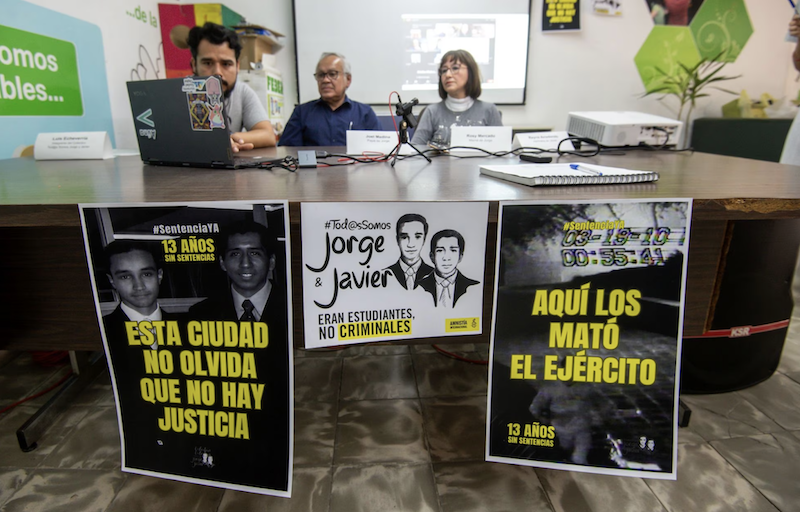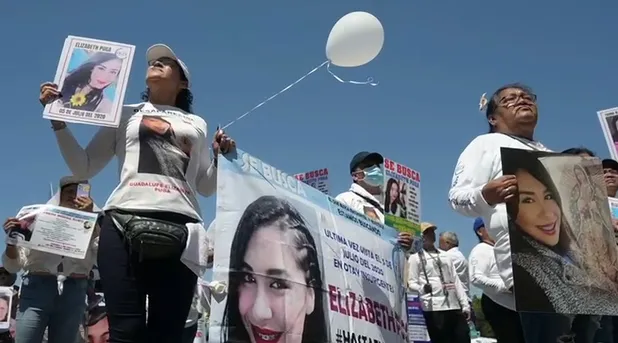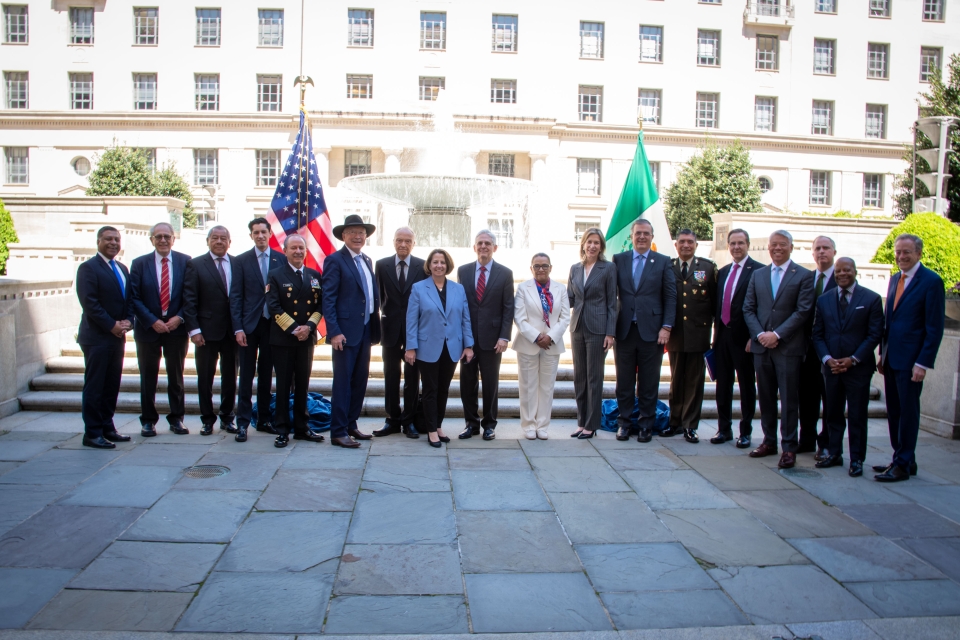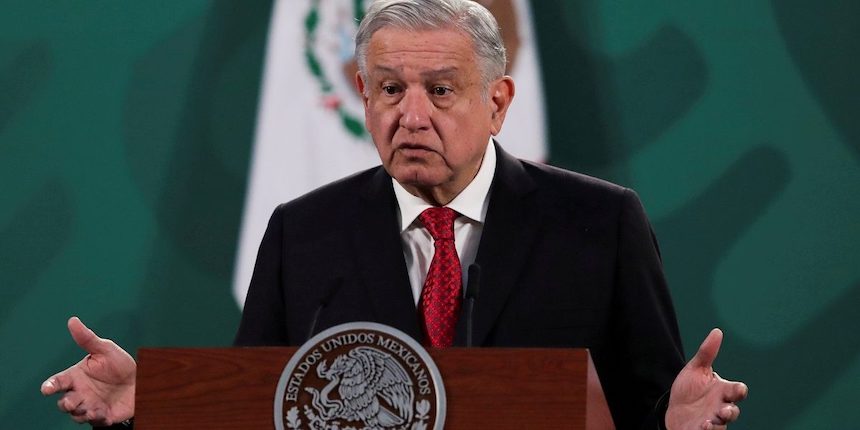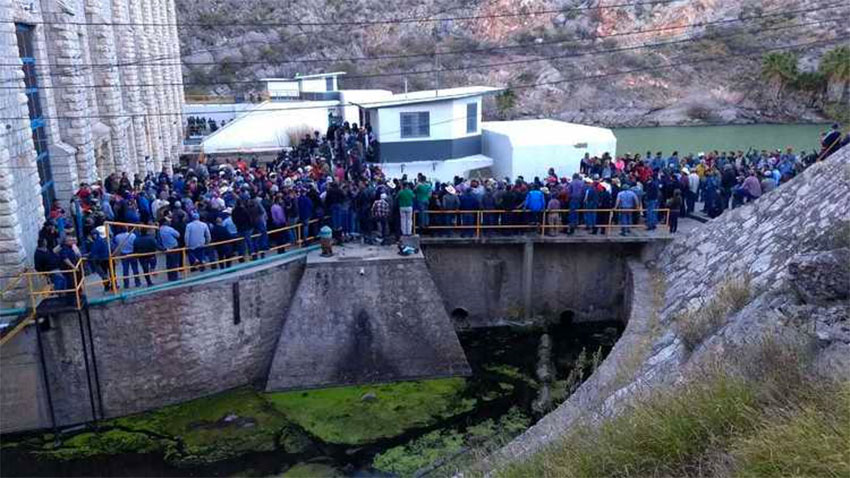
10/21/20 (written by mlopez) The protests in La Boquilla, Chihuahua have turned violent within the past month as the exportation of water across the border is continuing. A 1944 U.S.-Mexico treaty, which was in response to both parties’ mutual interests in both countries’ shared rivers, has resulted in a large debt that Mexico owes the United States. Mexico has delayed the release of the water reparations and the fast-approaching October 24th deadline of this year is resulting in the accelerated extortion of water from the dams in La Boquilla. This has resulted in a large divide among the local farmers who rely on the water for their agricultural purposes and the guardia nacional (National Guard) who is entrusted with releasing this water into the Rio Grande river.
The 1944 Treaty
The Treaty of February 3, 1944 between the United States and Mexico established a mutual agreement to share water between the Colorado River and the Rio Grande. The neighboring countries would allow an equal amount of water to pass through the borders as they both share the environment surrounding the border. While both parties were invested in these two vital rivers for the region, the use of the water became disproportionate. Population growth and the increase in industrialization ultimately affect how much water is needed by the communities that surround the rivers.
Currently, however, Mexico is facing a significant shortfall in the amount of water — 307,943 acre-feet, or 379.8 million cubic meters — due by Oct. 24, when the current five-year cycle ends. The deficit is about 88% of what Mexico is expected to supply per year to the United States. It is also worth noting that Mexico receives four times the amount of water it exports to the United States under this treaty. Nevertheless, the ramifications of the 1944 Treaty continue to impact everyday Mexicans over 75 years later. Mexico is not only behind on its payments, as noted, but the local farmers see this rapid exportation of water as impossible in conjunction with their own water uses. Farmers are not protesting the treaty itself, but rather how quickly and how much water will be revoked within a month. Whereas on the other hand President Andrés Manuel López Obrador ordered his National Guard’s to guard the Chihuahua dams in question and ensure that the water repayment mission is completed. AMLO is adamant on repaying the water debt as he fears the consequences of not complying could result in U.S. tariffs. As Sally Spener, a U.S. spokeswoman for the U.S. Water Commission, noted the treaty does not specify sanctions for noncompliance and assumes that both parties will make “good-faith efforts” to fulfill mutual obligations. This signifies that the treaty holds no mention of sanctions or further conflict as a punishment for non compliance.
The Affected Farmers
The farmers on the ground in Chihuahua have seen the escalation of issues with the 1944 treaty. They are stuck in between the area’s agricultural requirements for the land and the president’s sanctioning of the national guard in their backyard. The farmers began protesting at the start of July due to the National Guard’s presence at their dams. Protestors are upset that there will not be enough water to meet their agricultural needs, as they were recently hit by a drought. The water of these dams are seen as vital to the farmers’ livelihoods. Alejandro Aguilar, 57, a Chihuahua tomato and onion grower was among the protesters. “We will not end our fight, because this liquid is vital to our future, he said.” Protesters say they do not seek to renegotiate the 79-year-old binational water treaty. Rather, they say the Mexican government should seek alternative solutions, such as waiting for fall rains or diverting water from other border areas less affected by the drought than Chihuahua. Chihuahua’s climate is typically dry for the majority of the year with the rain season hitting from July through September. The lowest that the average temperature gets is about 50 ℉ and the highest is around 78℉, with the deserts hitting a high of 111℉. There are various terrains in the state of Chihuahua with the Sierra Madre mountains in the west, the Tarahumara Sierra mountains and Samalayuca deserts to the states north and south borders. These hot terrains in the north along with the lack of rainfall have lent to a dire situation where the sharing of their stored water seems like a threat to their farms in the north. In July 2020, protestors burned government vehicles, blocked railways, and set fire to government offices to protest the release of water to the United States. “For us, here, the question of water is fundamental,” said Salvador Alcántar, the head of Chihuahua’s association of irrigation. He continued, “It is the patrimony that we inherited from our grandparents, our parents. And now we have to leave it for our children.”
AMLO and the National Guards interference
President López Obrador expressed concern in press conferences that by not complying with the treaty the United States will place sanctions and have a reason to initiate conflict with Mexico. This is a presumed fear AMLO has as the treaty itself, as discussed by Sally Spener, has no punitive backing. He sees the National Guard protecting the transmission of water as a vital mission for Mexico’s national security and cooperative nature with the US. AMLO claims that Mexico receives four times the amount of water from the United States’s Colorado River than the United States does through the Rio Grande. Further, he estimates that the amount of stored water in Chihuahua’s northern dams is enough for both the farmers and the United States’s repayment. The president’s position on the repayment is also a product of his recent ties to President Donald Trump. López Obrador sees his next moves with the United States as vital due to it being an election year and he does not want to encourage any further “mexico-bashing” from the United States. He also mentions that he thinks these outbreaks of protests are sponsored by the National Action Party (Partido de Acción Nacional, PAN), his rival party, along with others who see themselves as the dueños del agua (owners of the water). President López Obrador does not want any trade conflicts with the United States, yet he also condones the current violent surge between farmer protesters and the National Guard. He did reassure that if the payment is not possible, he would appeal to Trump and explain the circumstances as to why there was a delay. If needed, AMLO did also clarify that he could appeal to members of the United Nations to assist in auditing the payments to its northern neighbor. The United Nations has not been made aware of the possibility that the president could call for experts to help audit the payments. Even the U.S. Section of the International Boundary and Water Commission has not been made aware of any discussion from their southern partners that the United Nations would survey their water deliveries, yet the president has brought up this possible course of actions in multiple commentaries. AMLO has options when it comes to handling these protests; it is just a matter of meeting the deadline.
Acceleration of the Violence
The protests themselves have been on and off since December of 2019, yet they really took root in Chihuahua in July 2020 with the drought. At the La Boquilla dam, on September 8 2020, the national guard tasked with opening the dam valves were encountered by protestors throwing rocks and sticks to stop the release of this water. The protestors eventually got control over the dam as the National Guard stepped back. This is where the narrative diverges, the national guard claims that armed citizens then fired at them, they retaliated, and one mother was killed in this exchange. On the other hand, the protestors and Chihuahua’s governor Javier Corral claim that the national guard was not attacked first. There is an ongoing investigation on the series of the events that claimed a woman’s life, harmed her husband, and have resulted in the escalation of violent protests in La Boquilla. These dams have become a site of mass unrest and these encounters will escalate as the deadline is a week away.
Sources
Sánchez, Anabel. “1944 Water Treaty Between Mexico and the United States: Present Situation and Future Potential,” Frontera Norte. 17 February 2006.
“Farmers, troops skirmish over water in Northern Mexico,” Washington Post. 09 September 2020.
“Gobierno federal y autoridades de Chihuahua instalan una mesa de diálogo para abordar el conflicto por el agua,” Latinus. 21 September 2020.
Rafael Romo, Krupskaia Alís. “El conflicto del agua en Chihuahua pasa de protesta de agricultores a pleito político,” CNN Espanol. 26 September, 2020.

